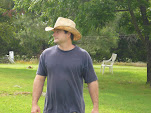I know functional is overused to death in todays fitness market. Its hyped and hyperboled.
However; I think your warm-ups are not only necessary, but they need to be functional.
A warm-up needs to be preformed to get your central nervous system , musculo-skeletal and cardiovascular system coordinated to function efficiently and smoothly. It protects the muscles and joints from injury and gets the blood flowing to deliver oxygen and stream line the energy systems and remove waste products as efficiently as possible.
Most warm ups take the form of stationary bike riding (where the trainee is usually engaged in reading ) or treadmill strolling (and the trainee conversing). I put it too you that this is mostly a waste of time. This is almost inactivity and doesn’t prepare you mentally or physically for the trial you are about to put your body through (hopefully).
The other style of warm-up commonly used is the light sets leading into heavy sets. Prelude sets into work sets. Specific warm up. This is a necessary step up to your working sets and you should do this, but if you haven’t done a general warm-up before your specific warm up then your body isn’t quite prepared to work as well as it can.
Here’s one example of a great functional warm up
Push ups
Jump rope
Bear crawls
Squat
Grasshoppers
Cassock/mantis
Each exercise done for one minute. No rest between exercises.
If your working out for an hour then that’s the first 6 min.
After this you’ll be thoroughly warmed up.
What makes it functional?
* The whole body is moving as an unit throughout the circuit.
the core is continually engaged
There’s upper body specific movements
Lower body specific movements
Synaptic facilitation is incorporated (training the groove)
All the body's systems are primed
There’s mobility drills incorporated
And flexibility
Doing this warm-up daily even with out a work out would produce real world benefits in health and spirit, but a warm-up along these lines is necessary to get the most out of your training sessions.


No comments:
Post a Comment